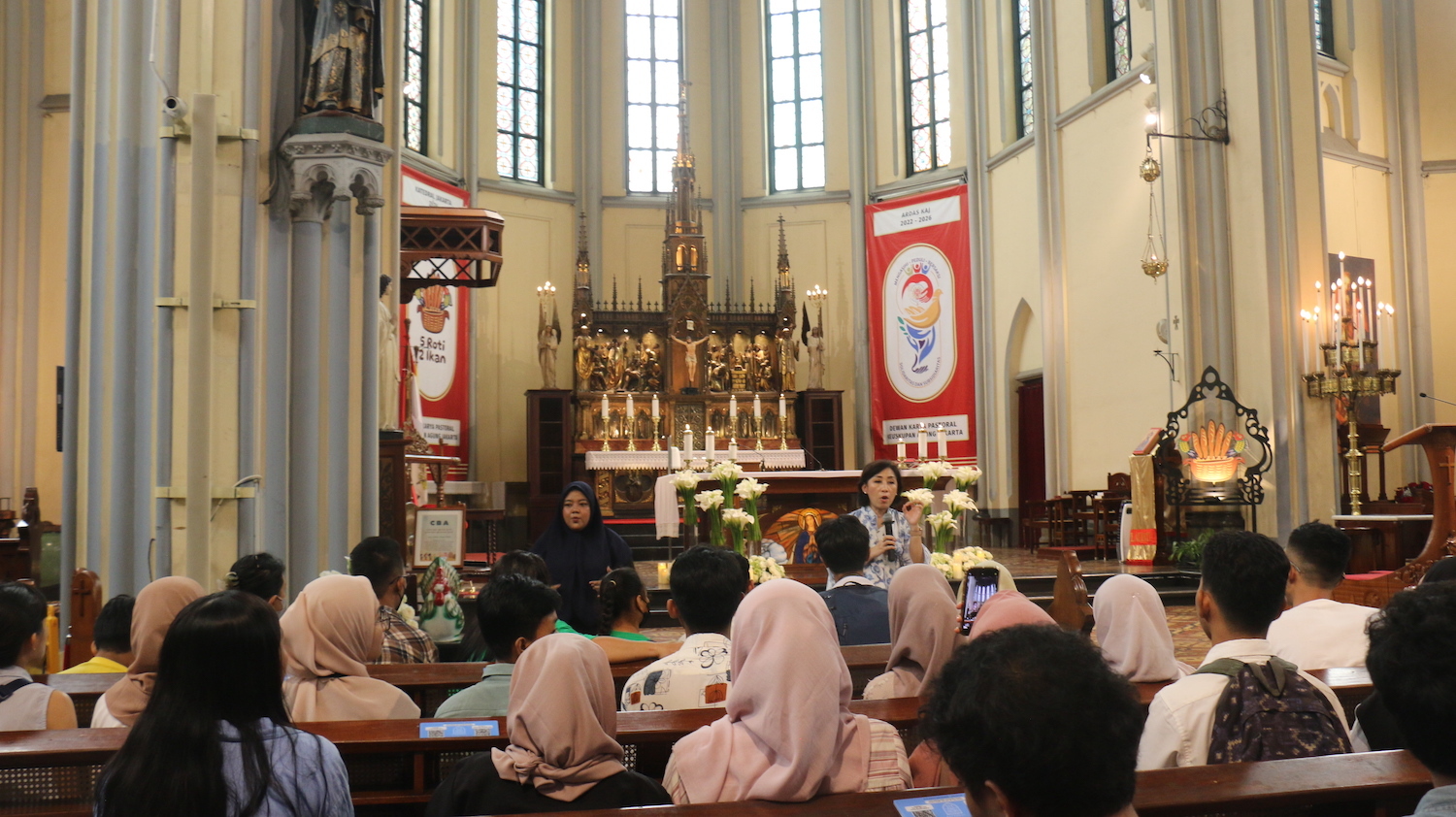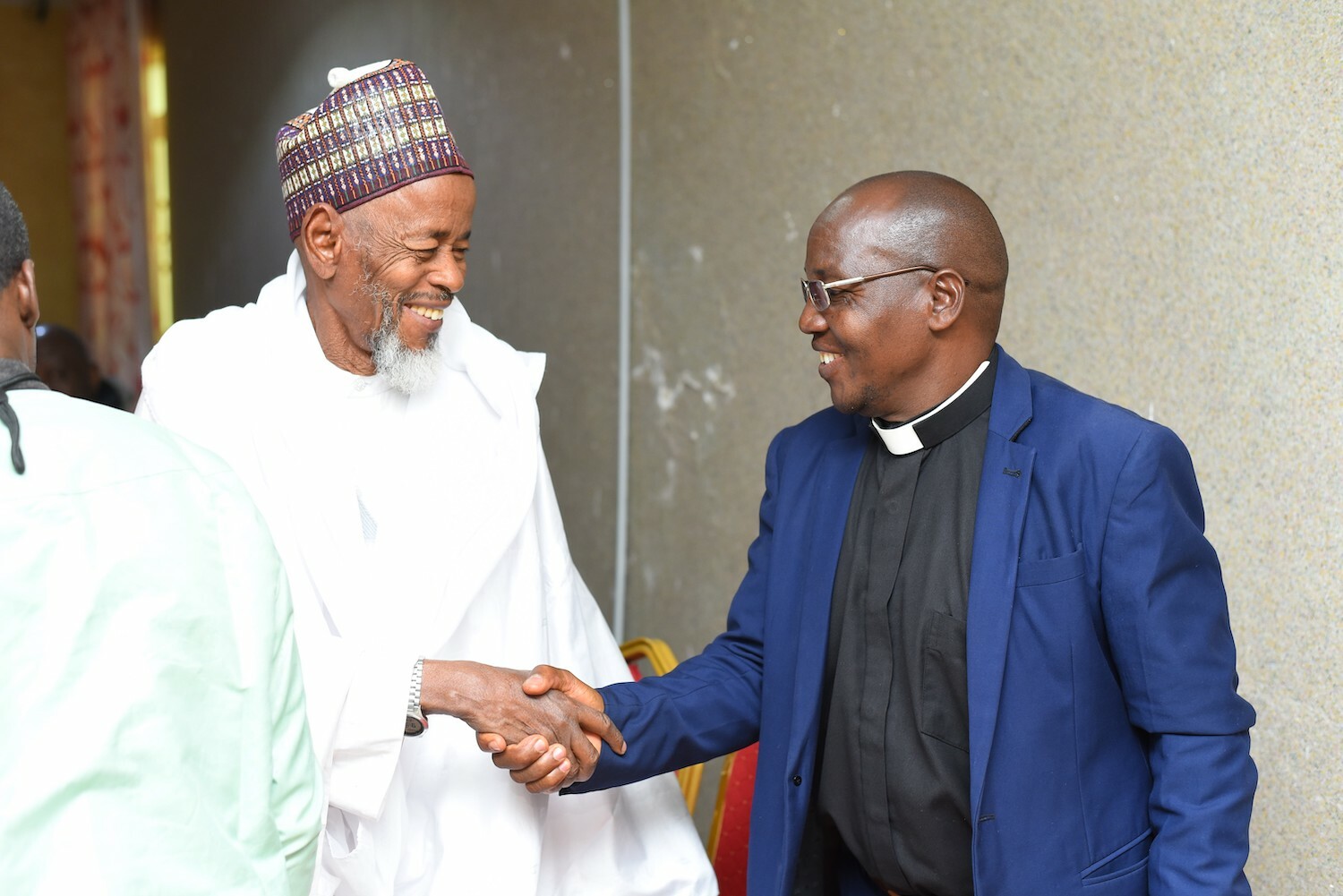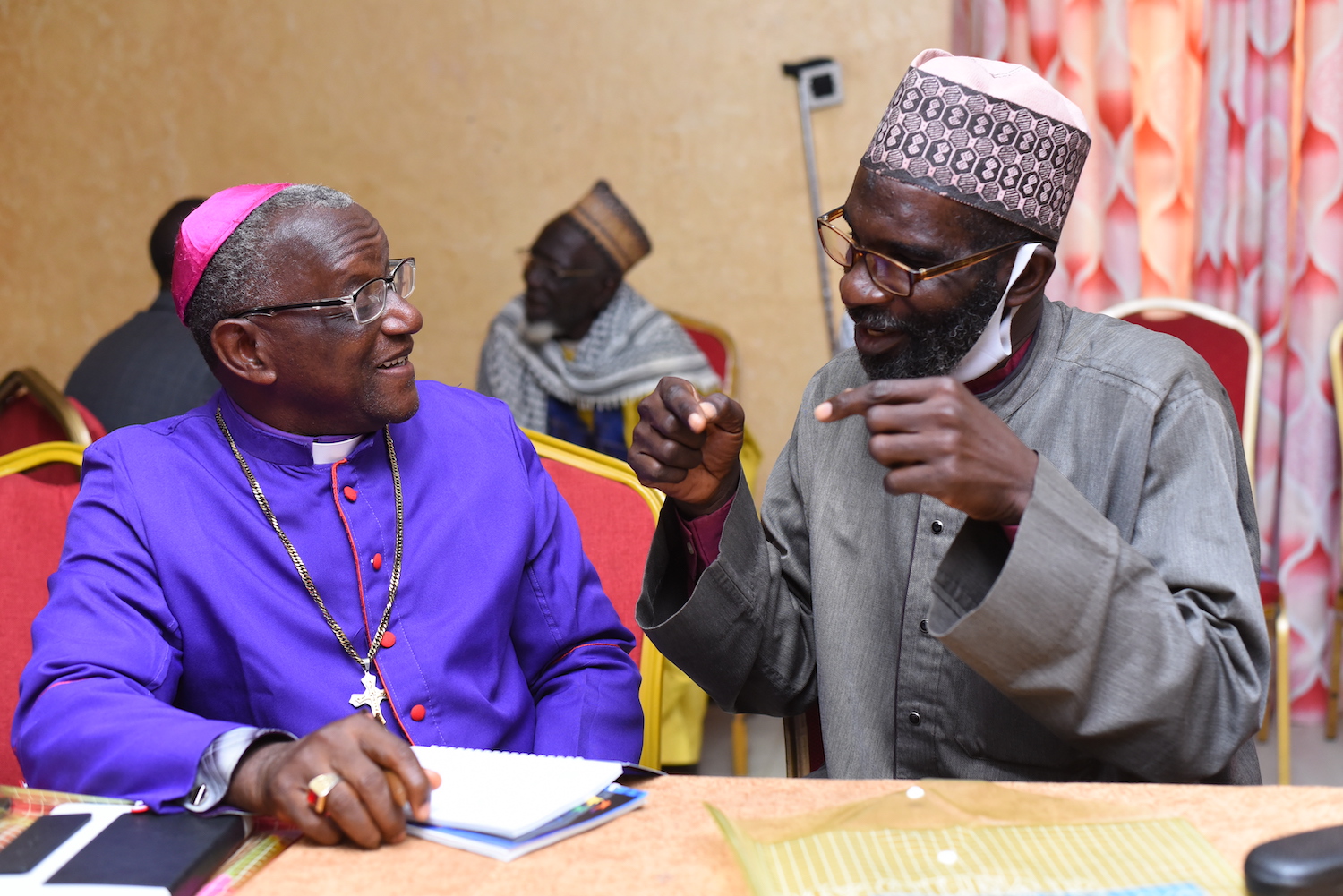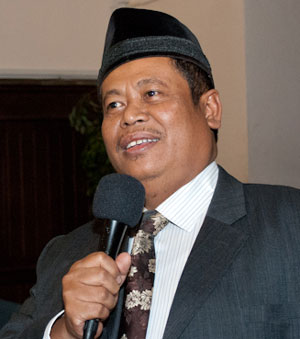
Dr. Marsudi Syuhud Sahudi, secretary-general of Nahdlatul Ulama, at a Washington, DC forum.
“The Muslim majority in Indonesia has particular responsibility to be an agent of peace,” said Dr. Marsudi Syuhud Sahudi, Secretary General of Nahdlatul Ulama (NU), the largest Muslim organization in Indonesia, at a forum of faith leaders at Howard University in Washington, DC. “Muslims must acknowledge the difference of experiences and seek accommodation through tenets of our faith that emphasize tolerance and respect towards others.”
The forum, “The Role of Religion in Pluralistic Societies,” on April 26, 2012, examined the national models of the United States and Indonesia, the world’s most populous Muslim nation, whose motto, Unity in Diversity, and national philosophy of Pancasila, or five principles, emphasize social justice and tolerance as the basis for social cohesion.
Dr. Marsudi said that moderation is the key for maintaining the social fabric of a multicultural society like Indonesia. “The teaching of moderation is very clear in Islam,” he declared. “So I would like to suggest that Indonesian experience is relevant to pluralistic society and democratic Muslim countries.”
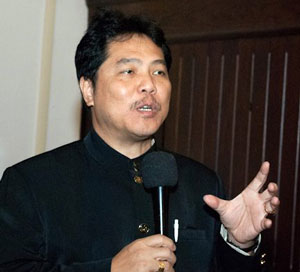
Dr. Chandra Setiawan, head of the Supreme Council of Confucian Religion in Indonesia, and chair of the Global Peace Festival Foundation-Asia Pacific.
Emphasizing Indonesia’s diversity—a nation of 17,000 islands, 240 million people, 300 ethnic groups, and 737 local languages—Dr. Marsudi said that NU had a singular role to foster tolerance and respect in the nation, not just as an abstract principle but as an ethic to be practiced in daily life.
One of the largest independent Islamic organizations in the world with more than 70 million members, NU is an important charitable institution in Indonesia, organizing communities to combat poverty. It also supports a network of some 21,600 Islamic boarding schools as well as hospitals and universities throughout Indonesia. NU is a Global Interfaith Partner with GPF, lending key support on strategic priorities.
Dr. Chandra Setiawan, Executive Director of the Global Peace Foundation–Asia Pacific, Presidium of the Supreme Council of Confucian Religion in Indonesia, and Founder of Indonesia Conference on Religion and Peace, told the forum that Pancasila “expresses a national consensus. It is the common platform for all religious groups to meet and discuss the future of Indonesia. The five principles in Pancasila—belief in One God Almighty, humanitarianism, national unity, democracy, and social justice—is an ideology and, at the same time, the goal of the nation.”
While Muslims constitute the majority in Indonesia (88 percent), Indonesia is not a theocratic state and Indonesia’s Ministry of Religious Affairs serves all major religious groups, including Muslims, Protestants, Catholics, Hindus, Buddhist and Confucians.
“The Muslim majority in Indonesia has particular responsibility to be an agent of peace. Muslims must acknowledge the difference of experiences and seek accommodation through tenets of our faith that stress tolerance and respect towards others.”
“People of different religious affiliations in the villages and urban areas live side by side in harmony and in cooperation with one another,” he said. “In many parts of Indonesia villagers of certain religious groups may offer support and cooperation for the construction of houses of worship belonging to different religious groups. They may offer greetings to one another on the occasion of religious holidays, and attend one another’s religious festivities. Expressions of local wisdom also have emerged to support the harmony of people of different religious affiliations.”
Dr. Setiawan said the Indonesian government and NGOs have launched a nationwide program to facilitate dialogue among different faith groups. Forums for inter-religious harmony have also been established in all 33 Provinces and some 399 out of some 450 districts and municipalities in Indonesia.
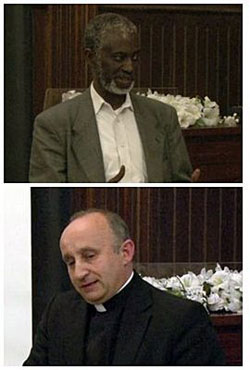
Dr. Sulayman S. Nyang, professor and chairman of the African Studies Department at Howard University (top) and Rev. Mark Farr, former President and CEO of the Faith and Politics Institute, at the Howard University forum.
Rev. Mark Farr, former President and CEO of the Faith and Politics Institute in Washington, and Dr. Sulayman S. Nyang, professor and chairman of the African Studies Department at Howard University, both praised the peaceful integration of religion in national life in Indonesia, and said that other countries could learn from the example of inclusion and social responsibility that the majority Muslim nation demonstrated toward religious minorities.
In a personal reflection, Rev. Farr suggested that modern, technological society of so-called Facebook “friendships” often leave us more disconnected than ever. “That disconnection is very important,” he said, “and in the political world we know that there is something wrong when, instead of people saying ‘I disagree with you but see you as a part of the American landscape,’ now they see their [political opponent] as an enemy and don’t even want to be seen together in a photograph. This takes us down a dangerous path, in which faith has a role to remedy.”
Dr. Nyang said faith leaders are supposed to be social engineers who, like bridge builders, bring people together across racial religious, and national lines. Faith leaders have a double duty, he argued, to bring people together and to define the common ground whereby people may live together in mutual respect.
During their three-day visit to the United States, the Indonesian leaders held meetings on Capitol Hill and with various U.S. agencies and think tanks. The delegation then traveled to Atlanta for a series of meetings in advance of the Global Peace Convention to be held there later this year.
NU plans to work with GPF to organize discussion and exchanges with American religious leaders, both Christian and Muslim, to show a working example of Islam participating fully and peacefully in a democracy.

